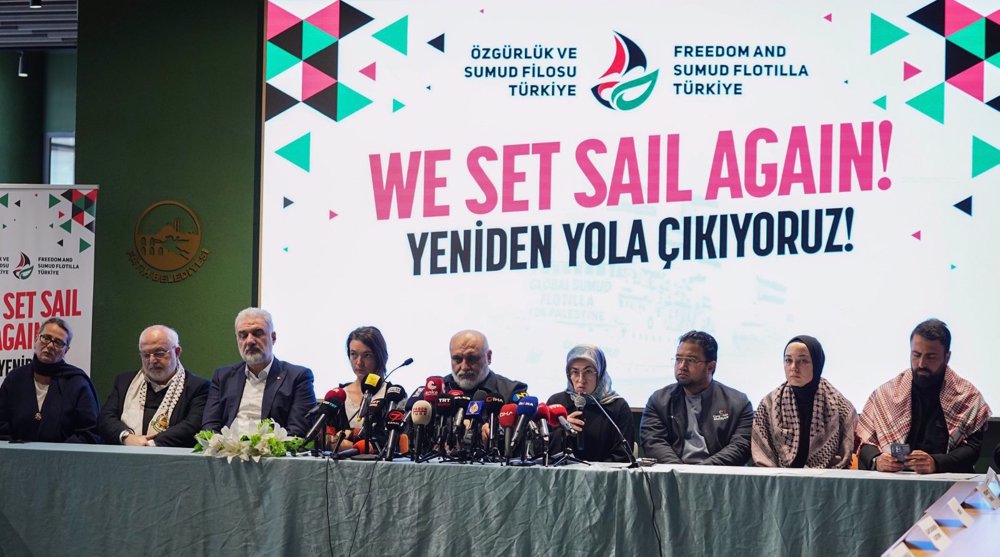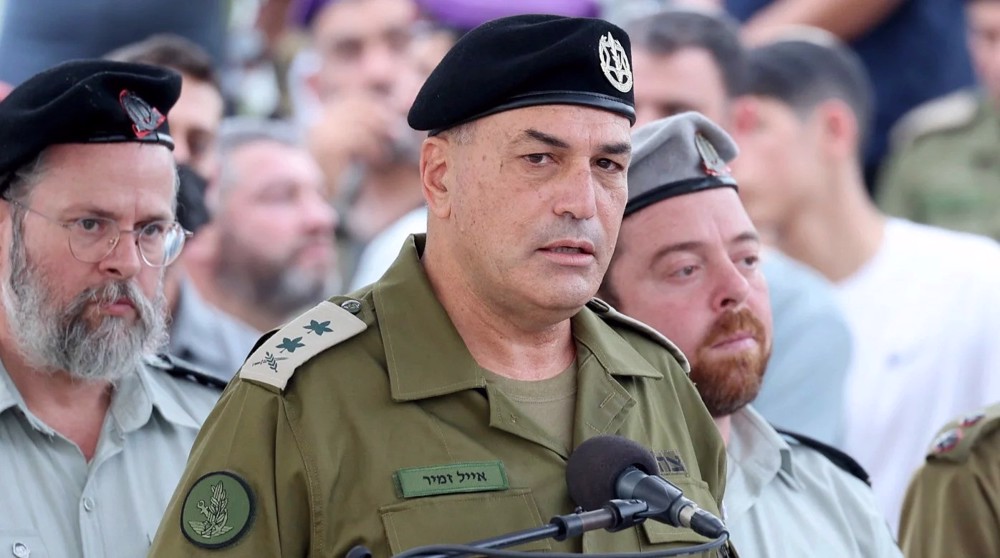Egypt mediators enter Gaza following Israel’s intensified military strikes
Egyptian mediators have entered the Gaza Strip in an effort to reduce tensions and prevent a new cross-border conflict following Israel’s increased aerial and artillery attacks.
The delegation from Egypt --which has long served as a mediator in Gaza—entered the impoverished Palestinian enclave on Monday at around midday local time.
Hamas said the Egyptian delegation headed straight for meetings with the Palestinian resistance movement's officials after entering the territory.
The visit comes as the Israeli military has intensified its attacks on the Gaza Strip, with its tanks pounding several positions in the besieged enclave.
The Israeli military claimed in a statement earlier on Monday that the attacks came in response to incendiary balloons sent from Gaza to the occupied territories on Sunday evening as well as protests along the fence separating the enclave from the occupied territories.
The Israeli regime every so often launches strikes against positions in the blockaded enclave, accusing resistance groups there of launching attacks.
Flying fiery kites and balloons has become a new mode of protest by Gazans since March 2018, when the Tel Aviv regime began a crackdown against anti-occupation demonstrations near the fence separating Gaza from the Israeli-occupied territories, killing and injuring many people.
Hamas vowed to step up its resistance against the Israeli military after two children were injured during nighttime Israeli strikes on Gaza on Friday.
Also on Sunday, Israel tightened its naval blockade of the Gaza Strip. It also banned fuel shipments from entering the Kerem Shalom crossing between the southern Gaza Strip and the occupied territories until further notice.
In a statement released on Monday, the Palestinian Power Authority said the only functioning power plant in the Gaza Strip will shut down by tomorrow morning if no fuel is imported through Israeli-controlled crossings.
Palestinians living in Gaza suffer regular blackouts as a result of fuel shortages, with electricity being provided for less than 12 hours a day. Power supply deficit in the coastal enclave is over 75 percent.
Monday’s development also comes as Israel and the United Arab Emirates have reached a deal that will lead to full normalization of diplomatic relations between the two sides, in an agreement apparently brokered by US President Donald Trump.
Anger is boiling in the Middle East and elsewhere over the agreement, with Palestinian leaders describing it as a “stab in the back” of the Palestinians by an Arab country.
The Gaza Strip has been under an Israeli land, air and sea blockade since June 2007, which has caused a decline in the standard of living as well as unprecedented levels of unemployment and unrelenting poverty.
Israel has launched three major wars against the enclave, killing several thousand Gazans and shattering the impoverished territory’s already poor infrastructure.
Vance says 'skeptic of military intervention' after progress in Iran talks
VIDEO | Third round of Iran-US nuclear talks concludes in Geneva
Geneva talks: Iran signals firm resolve, rejects US pressure, proceeds with cautious optimism
Iran urges Afghanistan, Pakistan to hold dialogue amid new escalation
US will suffer ‘massive losses’ in case of new war: Iraq's Kata’ib Hezbollah
Normalization increases cost of defeating Israel, Yemeni leader warns
Activists announce 'Freedom and Sumud Flotilla' to challenge Gaza blockade
VIDEO | Rome residents demand end to ties with Israeli firms











 This makes it easy to access the Press TV website
This makes it easy to access the Press TV website